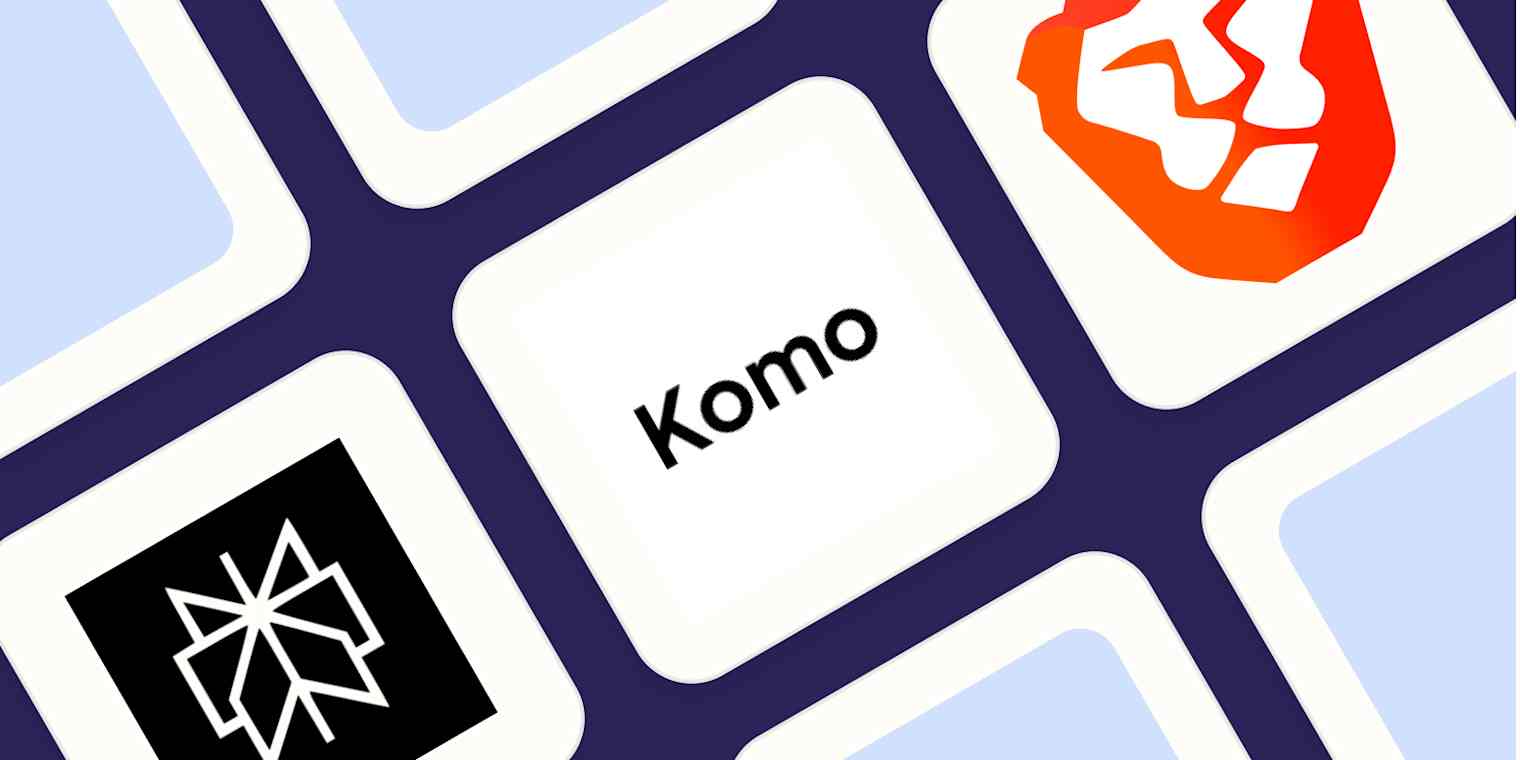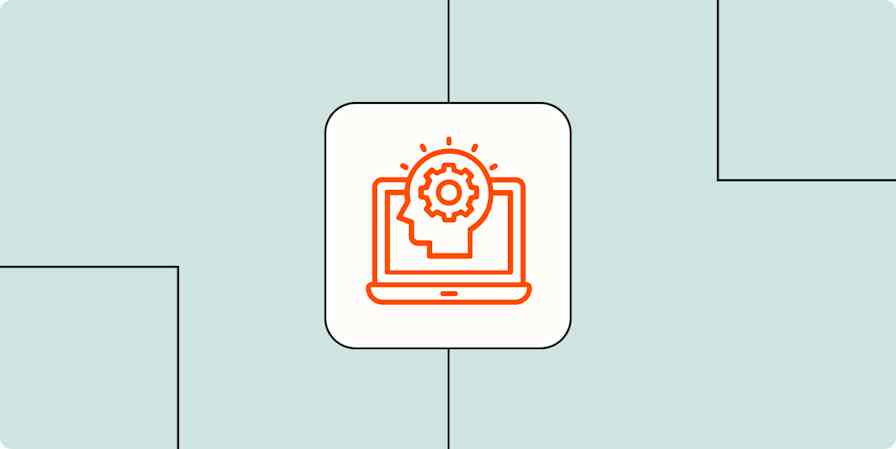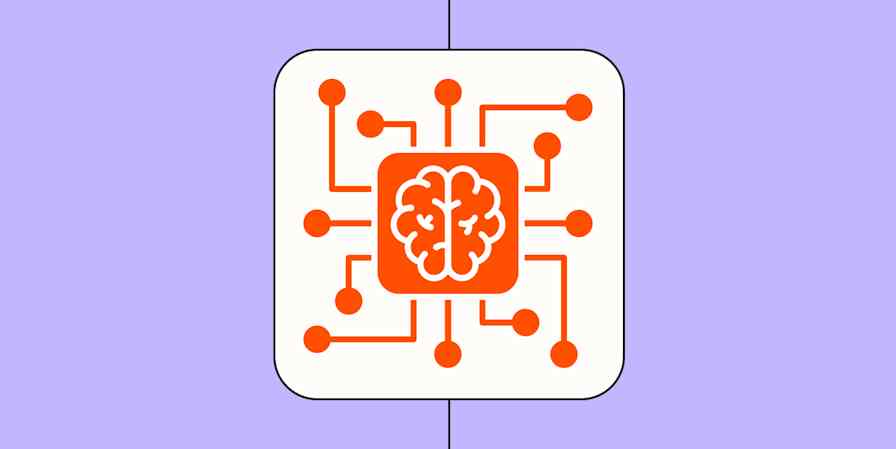We independently review every app we recommend in our best apps lists. When you click some of the links on this page, we may earn a commission. Learn more.
It often feels like Google search has gotten worse. While the issue is complicated, online search has never felt like such a chore. Not only do you have to hop through numerous links to pinpoint what you're searching for, but you also have to navigate a maze of ads, spam, and pop-ups. Even then, how often do you find the answers you need? AI search engines claim they're the solution, so let's see.
The new breed of AI search engines combines the tech behind AI chatbots like ChatGPT with traditional search methods to fetch answers to your queries. They find the links most relevant to your queries, read through them, and summarize the results. You don't have to scroll through a list of URLs or scan entire websites to find a little piece of information.
From large platforms like Google to new startups, lots of search engines now offer the ability to generate AI-assisted answers. Each one works differently to ensure (or at least try to ensure) its results are accurate and from reputable sources.
I've been covering AI since the mid-2010s, and as a tech writer, have an unhealthy relationship with search engines and web traffic. For this article, I tested all the top AI search engines to see which ones are best—here's what I found.
The best AI search engines
Perplexity for the best AI search experience
Komo for the best Perplexity alternative
Brave for combining traditional search with AI
Consensus for scientific and academic research search
What makes the best AI search engine?
Traditional search engines rely on algorithms that combine things like keyword relevance, how often a page is referenced on other websites, the quality of the content, how much users engage with the page, and how fast the page loads (including on mobile)—among other things. When you look up a query, the search engine gives you what it thinks will be the most helpful response as well as ads, quick answer boxes, flight suggestions, and a whole lot more.
An AI search engine goes a step further. It still uses this basic system, but instead of showing you a list of pages, it tries to answer your question itself. It passes the information it collects through the AI model it uses, which then summarizes it in a couple of paragraphs—while citing its sources. These citations were a key part of the criteria, as they allow you to verify the accuracy of the AI results. AI's ability to understand natural language means it can interpret your questions really well, even if you don't use certain keywords (though many traditional search engines have this kind of AI built in too).
For you, the process remains identical for the first half. You'll still put your query in an empty box, but now, the search engine will try to produce an answer right at the top. If you're not satisfied with it or would like to explore more, you can scroll down and continue to visit some web links like you would before. How they're presented varies from engine to engine. In some cases, you can ask a follow-up question. It will remember what you were looking for and be able to build on it, something a traditional search engine can't do.
All this comes with a healthy caveat: AI search engines have to produce the goods. Because they're summarizing the results instead of showing you them directly, if they misinterpret something, it can be hard for you to spot. Accuracy really matters. To that end, I tested each AI search engine with a number of challenging queries.
Two that really tripped up a lot of the options I considered were:
What US Open Games are on today? This required the AI to filter out all the extra noise and just tell me who was playing and at what time. A surprising number couldn't do it.
Compare the most recent iPhone, Samsung Galaxy, and Google Pixel flagships in terms of camera performance, battery life, and software update policies. This required the AI to gather up-to-date results and create a useful summary. Strangely, what caused the most issues was identifying the latest flagship phones. Some AI search engines (that aren't on the list) gave me specs for the iPhone 15 (last year's model) and even hypothesized specs for the iPhone 17 (which hasn't been announced yet). I wanted specs for the iPhone 16 Pro and the iPhone 16.
I felt these queries were a good approximation of how I want to use an AI search engine. It still has to do search engine things, like tell me up-to-the-minute sports info, but it should also be able to do more than a regular search engine. If it's reading all the articles to give me a summary, it should be able to pay attention to the specific parts I request.
While I was testing AI search engines, I was also looking for anything that improved on the traditional search experience. If it required more clicks, didn't produce helpful results, or had unnecessary pop-ups or a generally bad user experience, it didn't make the cut. In the end, that left me with four AI search engines that I feel confident recommending.
The best AI search engines at a glance
| Best for | Standout features | Pricing |
|---|---|---|---|
The best AI search experience | Conversational interface with follow-up questions and the ability to organize searches | Most features are free; $20/month for premium features | |
An alternative to Perplexity | Multiple AI model choices, search personas, and ability to set data sources | Free plan with limited functionality; from $15/month for Basic | |
Combining traditional search with AI | High-quality AI answers integrated into search results, with option to fall back on traditional links | Free; $3/month for Search Premium (no ads) | |
Scientific and academic research | Searches, summarizes, and cites academic papers; shows scientific consensus clearly | Free plan (10 Pro searches/month); from $11.99/month for unlimited Pro |
The best AI search engine experience overall
Perplexity (Web, macOS, Windows, iOS, Android)

Perplexity pros:
Great user experience
Ability to organize your searches
Perplexity cons:
Lots of duplicate features can be confusing
Generates some controversy
Perplexity is a search engine built with AI from the ground up. It swaps out the conventional blue links for a chatbot-like interface and allows you to converse with search results.
When you look up a query, you'll find a textbox to ask a follow-up under the generated answer. You don't have to repeat the details you punched in initially—since Perplexity remembers the context, you can simply ask it another question about the topic. Say you originally asked about the iPhone's camera specs. You can follow up with "how is its battery life," and it'll answer.
This basic idea is repeated in a few different forms. You can have Perplexity do Research and Labs searches, which both take longer and allow the AI to comb through more resources. You can also have it search just academic papers, financial statements, or social sites like Reddit. It's a lot of different buttons for the same core idea, but it does give you more control.
Perplexity has also improved how it handles live events and breaking news. It now fetches results in real time. You may have to throw "what's happening right now?" on the end of your prompt, but it can fetch live updates.
Perplexity also offers a few different ways to keep track of your previous searches. They stay in the sidebar as threads, and they can be organized into Spaces or published as Pages. I'm sure there's a few more I'm forgetting: Perplexity goes all in on repeating the same features in slightly different ways with different names.
Perplexity isn't without controversy. It has been criticized for making up information, plagiarism, and ignoring requests not to be included in its results. So as with all AI tools, be careful about taking anything they tell you at face value without verification. I found it to be accurate in my testing, but I didn't fact-check every single line in every single summary.
While Perplexity still has a lead in AI search, other tools are catching up, so the company also does things to generate headlines, like offering to buy Google Chrome and TikTok, neither of which it can afford. It's also launching an AI-powered browser called Comet that's still in beta.
Still, Perplexity is a powerhouse. And because it integrates with Zapier, you can tap into always-on research and route answers to all your other business tools, automatically. Learn more about how to automate Perplexity, or get started with one of these pre-made templates.
Send weekly AI-generated emails using Perplexity and Email by Zapier
Complete chats in Perplexity when new trigger phrases are spoken in Amazon Alexa
Complete chats in Perplexity when new emails arrive in Microsoft Outlook
Perplexity pricing: Free plan with quick searches and limited access to advanced search tools and models. From $20/month for Pro plan with unlimited Pro searches. From $200/month for Max plan with access to Comet browser and its most advanced features.
The best Perplexity alternative
Komo (Web)

Komo pros:
Lots of options, from AI model to search data
Nice user interface
Komo cons:
Too many bugs and bits of weirdness
Perplexity is a great tool, but it's hard to ignore the amount of controversy it generates. If you want an alternative that's less likely to be caught up in scandal, give Komo a try.
Komo feels a bit more stripped back than Perplexity, but it still has plenty of options. You can select from multiple AI models from OpenAI, DeepSeek, Anthropic, and more; you can ask it to take on a search persona like explainer or equity researchers; you can get it to do a regular AI search, deep research, or even just a regular search; and you can set its search source, like the whole web, academic research, and internal data that you've uploaded.
Honestly, Komo feels on the verge of being great. I just ran into a few too many bugs and bits of weirdness for my liking. For example, its Perspective Pulse attempts to provide an overview of the consensus on any given topic, but it never actually managed to do so in my testing. It was either summarizing nonsense, of no use, or just plain wrong. The apps link also just suggests bookmarking the web app.
For all that, Komo is definitely worth a look. AI search is a fast-evolving category, so I expect the bugs will be solved shortly.
Komo pricing: Free plan with limited functionality; from $15/month for Basic with access to AI search.
The best AI search engine for combining traditional search with AI
Brave (Web)

Brave pros:
Best AI answers of any search engine
Still get traditional results
Brave cons:
You probably don't use Brave as your search engine
Brave is a privacy-focused browser and search engine. The browser is based on Chromium and is pretty solid, but it's the search engine I'm going to talk about here.
Search engines like Google and Bing are adding AI answers to the top of their search results, but only Brave has so far pulled it off well enough that I'm happy to recommend it.
Since Brave is free and doesn't require an account, I suggest you just go and try it. When you enter a search, you have the option to select Answer with AI, though in my testing, Brave did so whether I ticked the box or not.
Anyway, at the top of your Brave results, you'll now see the AI answer, and in my testing, I found they were really good. They were far more accurate than the ones I've experienced with Google, they're clearly cited, and you can ask follow-up questions. Best of all, if the AI doesn't answer your question to your satisfaction, you can scroll on down to the regular search results.
Brave also respects your privacy. It doesn't track search information or build a profile about you. Any ads you see are related to your search query, and not targeted at you.
Having said all that, most other search engines are also doing something similar, so give them a try if you don't want to switch to Brave.
Brave pricing: Free; $3/month for Search Premium, which has no ads.
The best AI search engine for scientific papers
Consensus (Web)

Consensus pros:
Searches, summarizes, and cites academic papers
Clearly displays the scientific consensus around different issues
Consensus cons:
Too niche for most uses
Consensus is an AI search engine for academic papers. Plug in some scientific question, and it will comb the literature and present a handy summary of the current scientific consensus.
Consensus is obviously aimed at students and researchers, but if you're science-curious, it's equally useful. I found it did a really great job of clearly presenting the main scientific findings of the papers it reviewed.
Consensus offers three levels of analysis or search (the branding is inconsistent). Quick uses the top 10 papers, Pro the top 20, and Deep the top 50. In all cases, it evaluates and clearly displays the key finding of each paper it uses, cites its work well, and allows you to ask follow-up questions. I was really impressed.
Obviously, Consensus can still hallucinate and make errors—but the team behind it are clear about the mitigations they're taking. If you use it sensibly, it can be a really powerful tool.
Consensus pricing: Free plan with 10 Pro Searches per month; from $11.99/month for Pro with unlimited Pro Searches and more features.
Elicit is a similar tool, though it feels less like a search engine, which is why it didn't make the list.
What about Google?
Google is adding AI to its search results at a rapid clip, but I've found its AI Overviews to be incredibly inconsistent and often dead wrong. From the biggest search engine in the world, I expect better.
Google's more AI-forward approaches, AI Mode, and Google Web Guide, are currently experimental Labs features. If you're in the U.S. and have Labs enabled, you can give it a try, but features have to be widely available to make this list.
I expect Google will keep innovating and end up a leader in AI search, and watching how it's approaching AI search is a good indicator of where things are heading. But for now, it's fallen behind the competition.
What about ChatGPT, Gemini, and other chatbots?
Chatbots like ChatGPT, Gemini, and Claude can all search the web to answer your questions—and they're all pretty good at it. The catch is that they don't feel like a search engine even if you might end up with the same answer.
Yes, this is a pretty arbitrary line to draw, but I was looking for AI search engines that could replace Google in your day-to-day use, and I just don't feel chatbots reach that bar. I use ChatGPT all the time, but it hasn't replaced search.
What's the future of AI search?
AI search has a lot of promise, but it's not yet a complete replacement for regular search. Even the best tools like Perplexity and Komo still have their quirks. Traditional search engines are going to keep integrating AI features, and Google and Bing should soon catch up with Brave's implementation. Perhaps the most interesting use of AI search is in niche applications. Although Consensus was the least useful tool overall, it excelled at searching scientific papers.
At the same time, search engines are the web's engine rooms and are responsible for driving traffic and revenue to websites. AI search takes that away and doesn't reward the websites it extracts information from—although some companies, like Perplexity, claim to be trying to change that. Without the systems in place, AI search potentially threatens the internet's foundations and could have major repercussions for how it functions.
For now, I feel AI search is an area worth keeping an eye on. Don't delete Google just yet, but the options are definitely getting better.
Related reading:
This article was originally published in July 2024. The most recent update was in September 2025.










